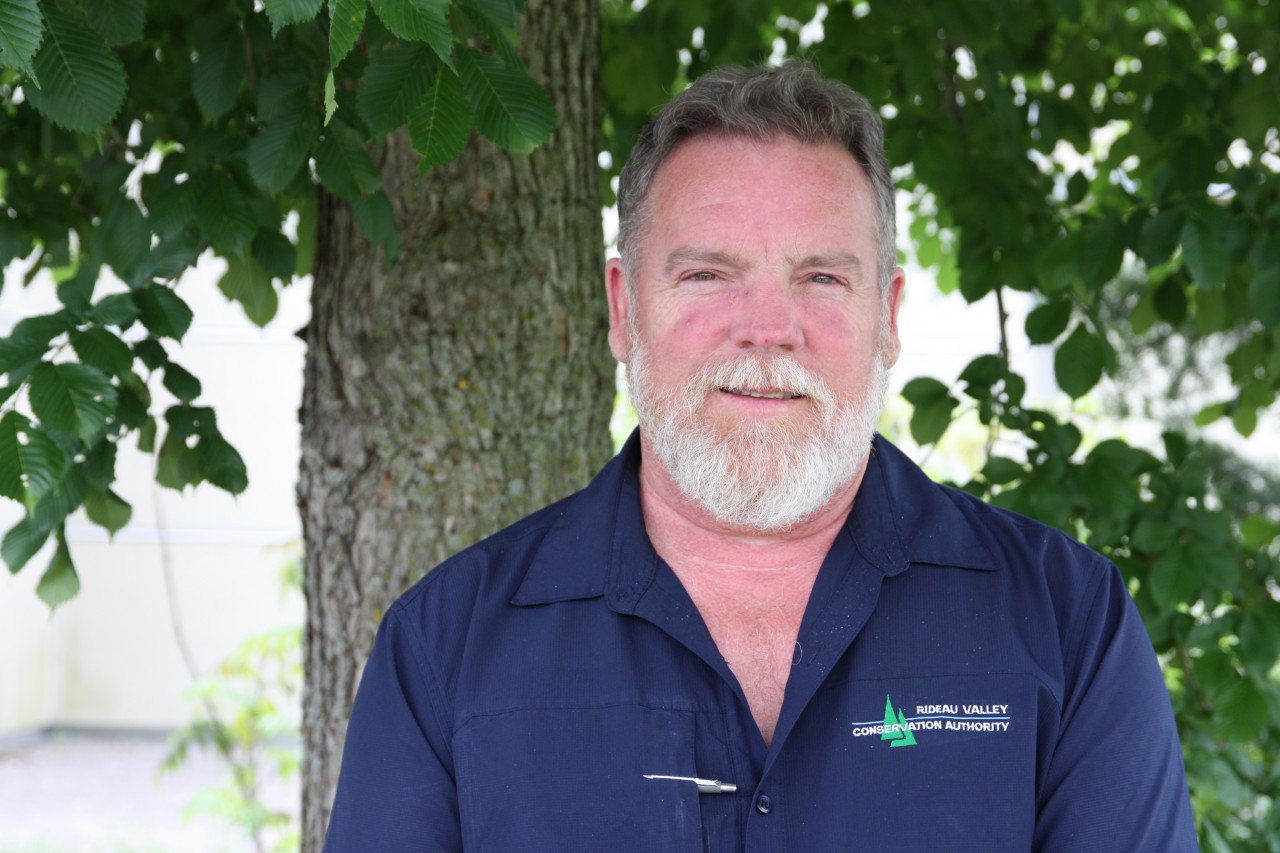There's a misconception out there that your local conservation authority is out to stop all development. But in reality the RVCA approves more than 90% of the applications it receives; our regulations inspectors and planners work with applicants to come up with plans that can suit the property owner, the provincial regulations and the watershed all at once.
Not convinced? Meet Hal Stimson, long-time inspector with the RVCA:
Tell us about yourself: What do you do at the RVCA?
I've been with the RVCA since 1998, and in the regulations department for 19 years. I'm a Provincial Enforcement Officer, regulations inspector and Certified Inspector in Sediment & Erosion Control. These days I deal primarily with watercourse alterations, wetlands and slopes in the city of Ottawa, although I review municipal drains across the entire watershed. I review permits for culverts and bridges, shoreline work, creek realignments, and even some docks and slope stability work on private properties.
"Regulations inspector" sounds scary. What exactly are you inspecting?
I do site visits before, during and after construction to make sure the work meets the requirements of applicable provincial legislation and isn't harming the environment or causing other issues. I respond to complaints and reports of violations, as well. But even if I find a violation, I'm not hauling anyone off to jail – as much as possible, we work with contractors and property owners to find solutions so the work can get done. Court action is a last resort, used only in more extreme cases.
We're ultimately there to protect your property, your personal safety and the public's safety. We're making sure that developments and alterations aren't going to cause flooding, erosion or pollution for you or anybody else.
Few people love bureaucracy and rules. What pushback do you get about the process?
There's always a certain percentage of people that don't want to hear the word "no" – but truthfully, we don't actually say "no" very often. We try to be helpful and find solutions. We'd rather discuss your plans with you before you even apply for a permit so you can submit a plan that meets provincial requirements right off the bat. That speeds up the process, too, because it cuts out the back and forth revisions.
Why are permits even necessary for some of these small jobs on private properties?
It's not about one small job; it's the cumulative impact of all these developments and alterations together. If one or two people on a waterway alter their shoreline, realign a creek, or fill in a wetland, perhaps it won't have a huge impact. But cumulatively, if there was no oversight, these kinds of activities could cause dramatic flooding issues, erosion and habitat loss across the entire watershed.
What advice do you have for a homeowner planning a project?
I really encourage people to call us up and talk to us first, before they do anything. We've got wonderful resource technicians who can answer all sorts of questions, explain the process and help the homeowner submit a permit application that can be approved with very little hassle.
Homeowners also need to protect themselves from shoddy work. Many landowners don't realize they can be held liable for violations on their property and the cost of any reparations that need to be made. If you're hiring a contractor, look for a company or person with experience working around watercourses and wetlands. Get three different quotes, and don't be afraid to ask for references.
For more information about planning your project and permit applications, visit https://www.rvca.ca/regulations-planning.

